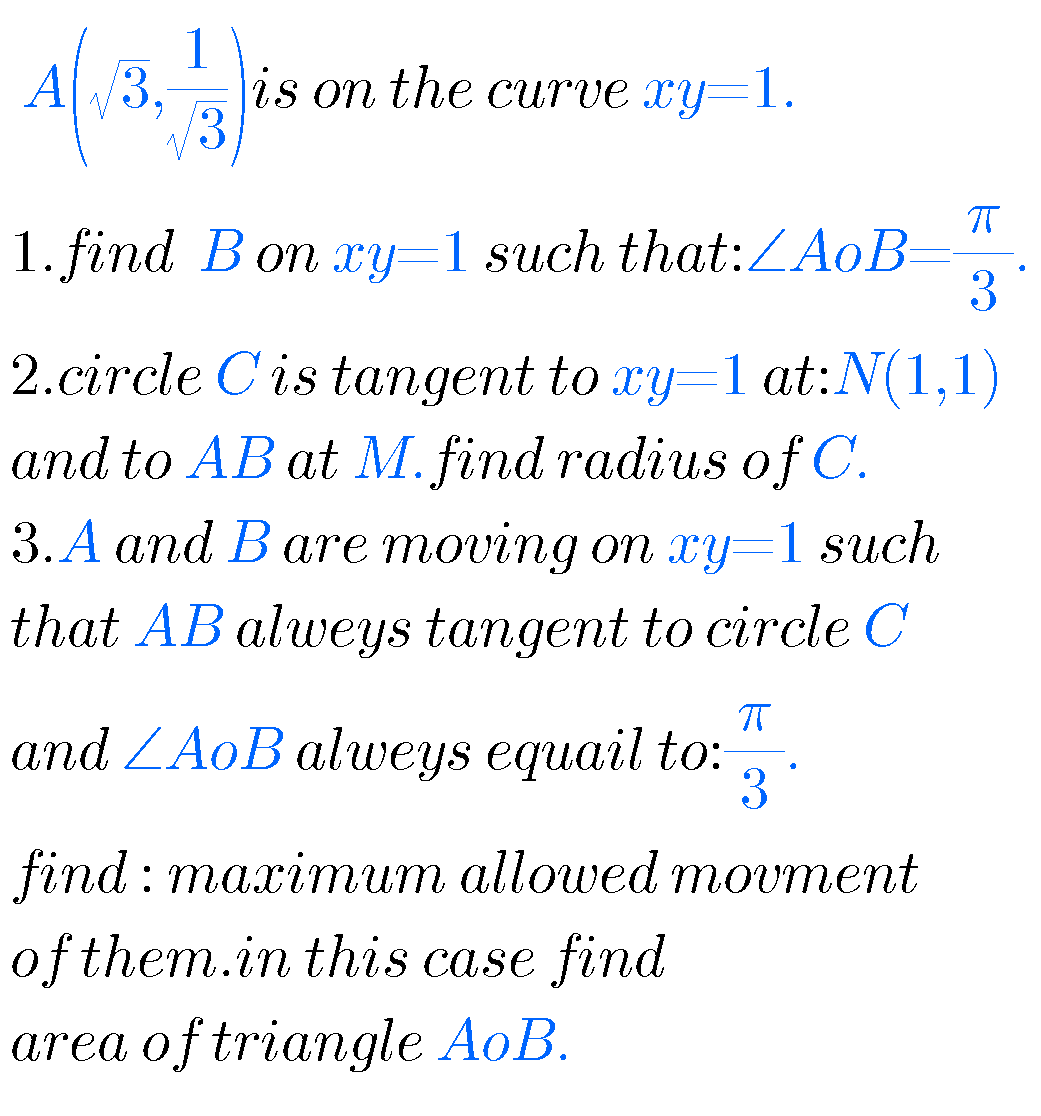
AllQuestion and Answers: Page 1975
Question Number 11363 Answers: 0 Comments: 0
Question Number 11356 Answers: 1 Comments: 0

Question Number 11355 Answers: 1 Comments: 0
Question Number 11353 Answers: 0 Comments: 0
Question Number 11352 Answers: 1 Comments: 0
Question Number 11388 Answers: 0 Comments: 0
Question Number 11351 Answers: 0 Comments: 0
Question Number 11344 Answers: 0 Comments: 1
$${n}_{{c}_{{n}} } =\frac{{n}!}{\left({n}−{n}\right)!{n}!} \\ $$
Question Number 11343 Answers: 0 Comments: 1
Question Number 11341 Answers: 0 Comments: 2

Question Number 11338 Answers: 2 Comments: 1

Question Number 11334 Answers: 1 Comments: 0
Question Number 11332 Answers: 0 Comments: 0

Question Number 11327 Answers: 0 Comments: 0
Question Number 11321 Answers: 2 Comments: 2
Question Number 11309 Answers: 0 Comments: 4
Question Number 11315 Answers: 0 Comments: 6

Question Number 11303 Answers: 2 Comments: 0
Question Number 11302 Answers: 2 Comments: 0
Question Number 11299 Answers: 0 Comments: 0
Question Number 11301 Answers: 1 Comments: 1
Question Number 11288 Answers: 1 Comments: 0
Question Number 11285 Answers: 1 Comments: 0
$$\frac{{sin}\mathrm{20}}{{cos}\mathrm{80}−{tan}\mathrm{30}×{sin}\mathrm{80}}=? \\ $$
Question Number 11284 Answers: 0 Comments: 0
Question Number 11283 Answers: 0 Comments: 0
Question Number 11278 Answers: 0 Comments: 2
$${please} \\ $$$${what}\:{is}\:{the}\:{meaning}\:{of} \\ $$$${I}\:{go}\:{go}\:{the}\:{go} \\ $$
Pg 1970 Pg 1971 Pg 1972 Pg 1973 Pg 1974 Pg 1975 Pg 1976 Pg 1977 Pg 1978 Pg 1979
